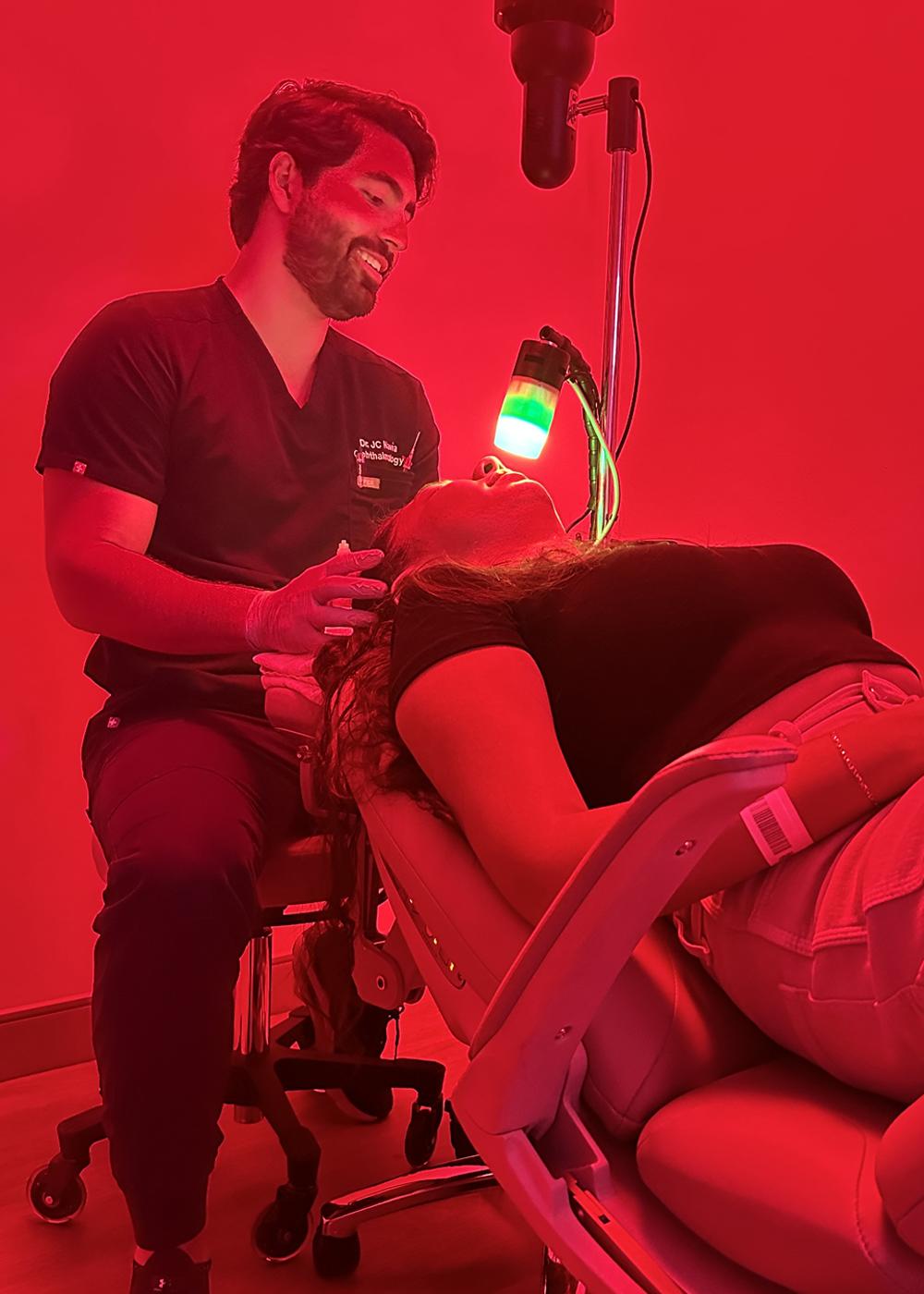 (NewsUSA)
(NewsUSA) - Those who suffer from eye infections that threaten a person’s vision have a new treatment option that is noninvasive and counters the problem of antibiotic resistance, based on recent research and clinical work.
- Those who suffer from eye infections that threaten a person’s vision have a new treatment option that is noninvasive and counters the problem of antibiotic resistance, based on recent research and clinical work.
Many eye infections are caused by multi-drug-resistant strains of bacteria and other pathogens, and standard treatments are limited, according to investigators at the Bascom Palmer Eye Institute of the University of Miami Miller School of Medicine in Florida.
VisiRose, a newly launched, privately-held clinical-stage biotechnology company affiliated with Provectus Biopharmaceuticals (OTCQB: PVCT), is collaborating with Bascom Palmer to commercialize a novel, noninvasive therapy for severe eye infections. The treatment, known as Rose Bengal Photodynamic Antimicrobial Therapy (RB-PDAT), combines a bioactive synthetic small molecule known as Rose Bengal Sodium with a light-based medical device to help manage eye infections caused by bacteria, fungi, and parasites.
“RB-PDAT represents a consequential solution for patients at risk of vision loss from severe infectious keratitis,” said Dominic Rodrigues, acting CEO of VisiRose. RB-PDAT treatment has been associated with rapid resolution of severe eye infections and improved vision outcomes for patients in clinical studies in the U.S., India, Brazil, and Mexico, according to the company.
“We believe Bascom Palmer’s innovative therapy combines infection-fighting capabilities with vision-preserving benefits, paving the way for a brighter future for those struggling with this challenging condition,” said Rodrigues, who also serves as vice chairman of the board of directors and president of Provectus.
Rose Bengal Sodium, the company’s flagship molecule, has demonstrated effectiveness against multi-drug-resistant Pseudomonas aeruginosa, among other strains, in a laboratory setting. At the Ocular Microbiology and Immunology Group conference in 2023, Bascom Palmer researchers reported that 76% of the first 100 patients treated with RB-PDAT at Bascom Palmer, who had severe eye infections unresponsive to standard treatment,achieved successful vision outcomes, with an average time to resolution of just over 6 months.
In a case series published last year in the medical journal JAMA Ophthalmology of nine adults who experienced severe eye infections caused by contaminated artificial tears, RB-PDAT was effective as an addition to antibiotics and helped improve vision outcomes in two patients who received this new therapy, according to Bascom Palmer researchers: a man in his 40s who came to the emergency department with severe pain and decreased vision in his left eye; and a woman in her 80s with worsening redness and visual loss in her right eye.
“This innovative therapy leverages the power of the versatile rose bengal small molecule to fight infection and offers new hope for preserving vision," Rodrigues said.
RB-PDAT has shown promising results in treating severe eye infections in more than 500 individuals worldwide where standard therapies have failed, according to the company press release. Notably, patients in India and Brazil were treated much earlier with RB-PDAT, receiving the oculat treatment as first-line therapy. “VisiRose has the potential to help fill a critical treatment gap in global eye care, particularly in regions and populations severely impacted by antimicrobial resistance with limited access to medical solutions,” Ed Pershing added, who is chairman of VisiRose’s board of directors and also serves as CEO and chairman of Provectus’s board.
Visit www.visirose.com to learn more.
Image caption: Juan Carlos Navia, M.D. at Bascom Palmer Eye Institute at the University of Miami Miller School of Medicine, delivering the VisiRose RB PDAT treatment in the clinic.

